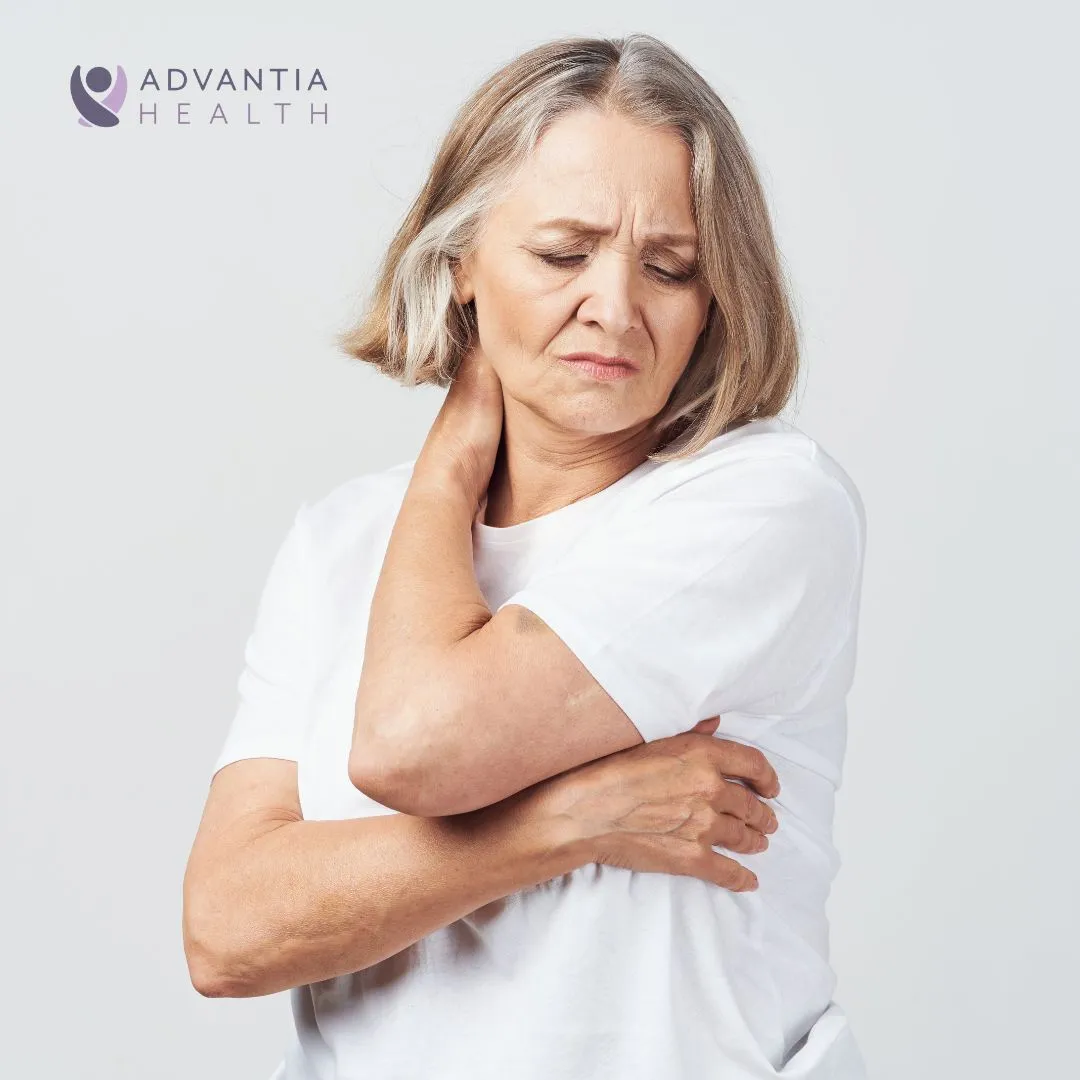
Published on: 20 February, 2024
Read Time: 3 min
Menopause can bring about various symptoms, and one commonly experienced issue is joint pain. This blog will discuss ways to manage joint pain during menopause, and explore how estrogen can alleviate discomfort. Advantia Health providers are here to discuss your women’s health questions and worries. They can help address any concerns you have.
The Impact of Menopausal Joint Pain
Menopausal joint pain is a significant concern for many women. Symptoms like joint pain, shoulder pain, hip discomfort, and frozen shoulder can significantly affect a woman’s quality of life.
Linking Menopause, Joint Pain, and Estrogen
Estrogen, a key hormone in a woman’s body, plays a large role in joint pain. Apart from its reproductive functions, it also has anti-inflammatory properties and acts as a lubricant for the joints. Studies show that menopause can cause lower estrogen levels, which may lead to joint pain and discomfort. When dealing with menopausal joint pain, it’s important to understand how estrogen can help manage this symptom.
Understanding the Symptoms
Some women may experience joint pain and tingling at night during menopause. This can lead them to believe they have arthritis because of the ongoing discomfort. Also, women who have more hot flashes and night sweats tend to have more joint pain.
Adequate sleep is crucial. Poor sleep can exacerbate joint discomfort, influence sexual drive, weight, and temperament.
Role of Estrogen in Managing Joint Pain
Many studies support the use of estrogen in managing joint pain and other common ailments as we age. One study showed that women who underwent hysterectomies and were on estrogen-only therapy, experienced considerably less joint discomfort than the non-hormone group.
Another study found that women who didn’t use hormone therapy had a higher chance of getting frozen shoulder. These studies highlight the possible role of estrogen in controlling joint pain, especially during menopause.
Lifestyle Strategies and Complementary Approaches
Women in menopause can feel better by changing their lifestyle and knowing how estrogen helps with joint pain. Exercise, healthy eating, and stress relief can help with menopausal joint pain and improve overall well-being.
Seeking Professional Guidance and Support
For women grappling with menopausal joint pain, consulting healthcare professionals who specialize in women’s health is crucial. Advantia Health providers offer personalized guidance and support to ensure women receive tailored comprehensive care for their unique needs. By seeking reliable information and professional consultation, women can make informed decisions about managing their menopausal joint pain effectively.
Conclusion: Navigating Menopausal Joint Pain
Menopausal joint pain can significantly impact a woman’s daily life. Understanding how estrogen can help with joint discomfort during menopause helps women see how hormones affect joint health. With help from experts, women can find ways to deal with joint pain during menopause, making this stage easier to handle.





